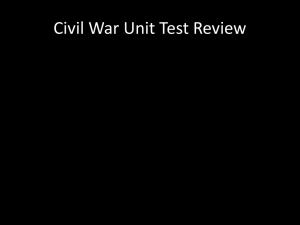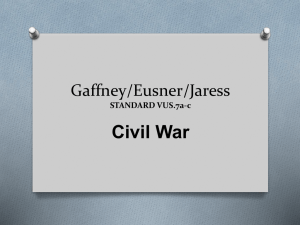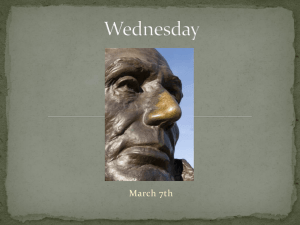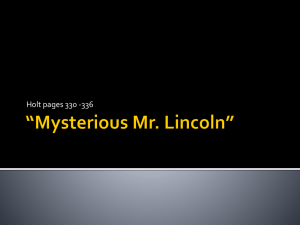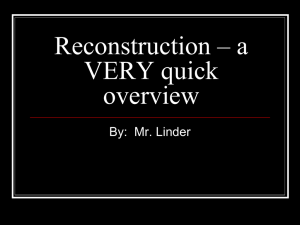Humanities Year 9 Homework Booklet 1 Name: This booklet should
advertisement
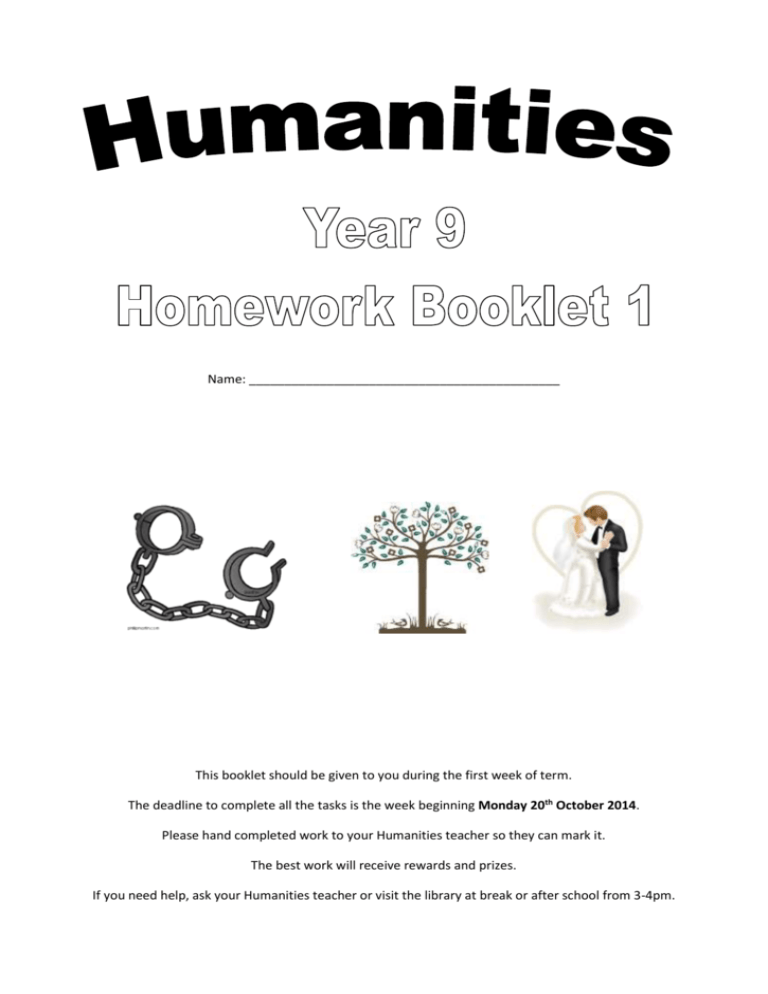
Name: ____________________________________________ This booklet should be given to you during the first week of term. The deadline to complete all the tasks is the week beginning Monday 20th October 2014. Please hand completed work to your Humanities teacher so they can mark it. The best work will receive rewards and prizes. If you need help, ask your Humanities teacher or visit the library at break or after school from 3-4pm. Topic 1: Slavery How important was Southampton in the slave trade? This term you will be studying the slave trade. This was when people were taken from Africa across the Atlantic to work as slaves on the plantations producing sugar, cotton and tobacco in the West Indies and United States. Many towns in Britain played a part in the slave trade, especially ports through which the goods from the West Indies came into Britain. Some places, like Bristol, have very strong links with the slave trade, but what of Southampton? Southampton is a port but did it have much of a connection to the slave trade? Your task is to find out how far Southampton was involved in this trade. You can present your work as a piece of written work, a PowerPoint, a moviemaker presentation, a poster or a leaflet. Part of your task is to research the topic. You could look things up on the internet or visit a library. To help you with your research you could look at the following sites. You may also be able to find more! www.southampton.gov.uk www.bbc.co.uk/hampshire/abolition/ http://www.bbc.co.uk/southampton/features/bhm/bhm_slavery.shtml You could compare the role of Southampton to a more famous slave port like Bristol. Can you explain any differences you find? Topic 2: Ecosystems An ecosystem is made up of living things (plants, animals) and the nonliving parts of their environment (things like air, water and soil). This half term you will be studying ecosystems, using UK Temperate Forests as an example and later moving on to study Tropical Rainforests, Taiga Forest and deserts. For homework this term you need to make a PPT or poster about another ecosystem. You could choose to investigate Savanna, Grassland or Tundra ecosystems. Your PPT or poster must include written text and pictures about the following points and questions; Where is the ecosystem found? What types of animals and plants live in the ecosystem? Draw a food chain or food web for the ecosystem What is the weather and climate like in the ecosystem? How are animals and plants adapted to cope with the climate of the ecosystem? What is the soil like in the ecosystem? How are the plants adapted to cope with the soil (or lack of it) in the ecosystem? Useful websites; http://www.blueplanetbiomes.org/savanna.htm http://www.ducksters.com/science/ecosystems/grasslands_biome.php http://www.worldbiomes.com/biomes_tundra.htm Topic 3: Religious attitudes to relationships You will be looking at ethical issues linked with relationships such as parenting, marriage and divorce this half term. You will need to use this work to help you answer the questions below. For homework, you need to answer the following questions in as much detail as you can; 1. ‘Marriage promises (vows) are out of date.’ What do you think? Explain your opinion. (3 marks) 2. ‘Couples should marry before they have children.’ Do you agree? Give reasons for your answer, showing that you have thought about more than one point of view. Refer to religious arguments in your answer. (6 marks) 3. ‘Religious people who are married should not use contraception.’ What do you think? Explain your opinion. (3 marks) 4. ‘Religious people should never divorce.’ Do you agree? Give reasons for your answer, showing that you have thought about more than one point of view. Refer to religious arguments in your answer. (6 marks) Tips for answering: When you are asked for your opinion then there is no single ‘right’ answer BUT marks will not be given for just saying what you think You need to explain your opinion in detail and say why you believe what you do The 6 mark questions also ask you to include more than one point of view – compare your opinion to someone else’s – this may be a religious opinion or two You will not get full marks unless you include some religious points (Christian, Muslim, Hindu etc) in your work – make it clear which religion you are talking about! Fact file: Geography Learn the locations and spellings of the South American countries and cities on the map below for a test. Remember! South America is one of the 7 continents Fact file: History Find out about the key events from History below. Learn the facts and spellings for a test. 1833 1861 1865 1865 Abolition of slavery in British Empire American Civil war begins American Civil war ends 13th amendment leads to abolition of slavery in the USA Abraham Lincoln (1809-1865) Lincoln was the 16th president of the United States and one of the great American leaders. His presidency was dominated by the American Civil War. Abraham Lincoln was born on 12 February 1809 near Hodgenville, Kentucky. He was brought up in Kentucky, Indiana and Illinois. His parents were poor pioneers and Lincoln was largely self-educated. In 1836, he qualified as a lawyer and went to work in a law practice in Springfield, Illinois. He was elected to Congress in 1846, representing the Whig Party for a term. In 1856, he joined the new Republican Party and in 1860 he was asked to run as their presidential candidate. In the presidential campaign, Lincoln made his opposition to slavery very clear. His victory provoked a crisis, with many southerners fearing that he would attempt to abolish slavery in the South. Seven southern states left the Union to form the Confederate States of America, also known as the Confederacy. Four more joined later. Lincoln vowed to preserve the Union even if it meant war. Fighting broke out in April 1861. Lincoln always defined the Civil War as a struggle to save the Union, but in January 1863 he nonetheless issued the Emancipation Proclamation, which freed all slaves in areas still under Confederate control. This was an important symbolic gesture that identified the Union's struggle as a war to end slavery. In the effort to win the war, Lincoln assumed more power than any president before him, declaring martial law and suspending legal rights. On 19 November 1863, Lincoln delivered his famous Gettysburg Address at the dedication of a cemetery at the site of the Battle of Gettysburg, a decisive Union victory that had taken place earlier in the year. In 1864, Lincoln stood for re-election and won. In his second inaugural address, he was conciliatory towards the southern states. On 9 April 1865, the Confederate general Robert E Lee surrendered, effectively ending the war. It had lasted for more than four years and 600,000 Americans had died. Less than a week later, Lincoln was shot while attending a performance at Ford's Theatre in Washington DC and died the next morning, 15 April 1865. His assassin, John Wilkes Booth, was a strong supporter of the Confederacy.

